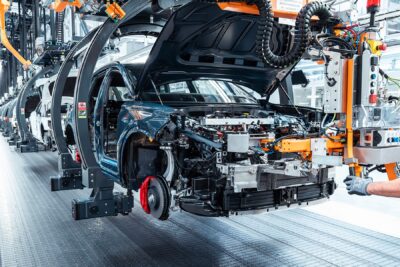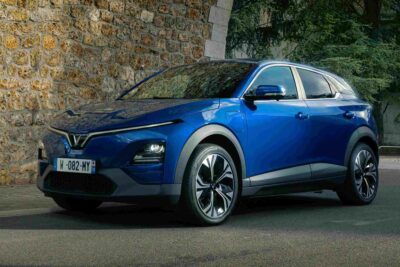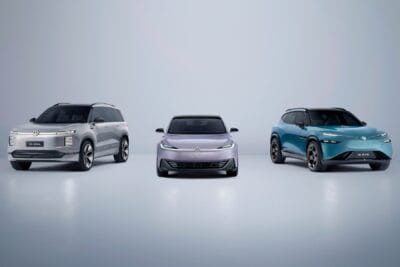Audi, Nissan, Mercedes, NEVS, WM Motor, Indonesia
Significant changes at Audi: Electrification is the new norm, or shall be in Ingolstandt and so Audi decided to get rid of power output designations such as 2.0 TFSI oder 3.0 TDI. Instead, two digits that stand for the output in kW followed by the actual motor technology such as TFSI, TDI, g-tron, or e-tron shall describe each variant. Audi explains this step with new technologies taking over in the future, which will make cylinder capacity less relevant for customers.
greencarcongress.com, audi-mediacenter.com
Latest tease for Nissan Leaf: The countdown is on for the launch of the next-gen Nissan Leaf and so the Japanese continue to serve one little piece of tease after the other. Not sushi of course but an animated video and a snapshot of the rear light. However, the web was faster as usual so the full menu, meaning a naked Leaf and spec, have been put on the table already.
greencarreports.com
First view of the Mercedes EQA: We missed a tiny little detail when announcing Mercedes’ IAA line-up lately. If you look very closely, you can discover the compact EQA already in the picture.
electrive.net (picture)
New NEVS investors: Saab successor NEVS has got a new co-owner in Beijing Zhenghuon Technology, an investors group that just poured 108m dollars into National Electric Vehicle Sweden. Didi Chuxing, China’s equivalent to Uber, is also thinking about taking a stake in NEVS, and “discussions have been going on all summer,” according to NEVS CEO Stefan Tilk.
just-auto.com, saabplanet.com
German design for Chinese EVs: WM Motors has turned to Isdera, a design and engineering firm based in the German town of Saarwellingen and led by former Porsche engineer Eberhard Schulz, to give their electric cars some substance. Founded in China last year, WM Motors wants to cooperate across all business areas with Isdera, including manufacturing and raising capital.
autonews.com, autonewschina.com
Indonesia’s EV incentives: A new policy by the Indonesian government wants to favour electric and hybrid vehicles by granting them a break from taxes. The goal is to reduce emissions by 29 percent by 2030 and the Ministry of Industry, intends to make its plans public by the end of the year.
nikkei.com





0 Comments